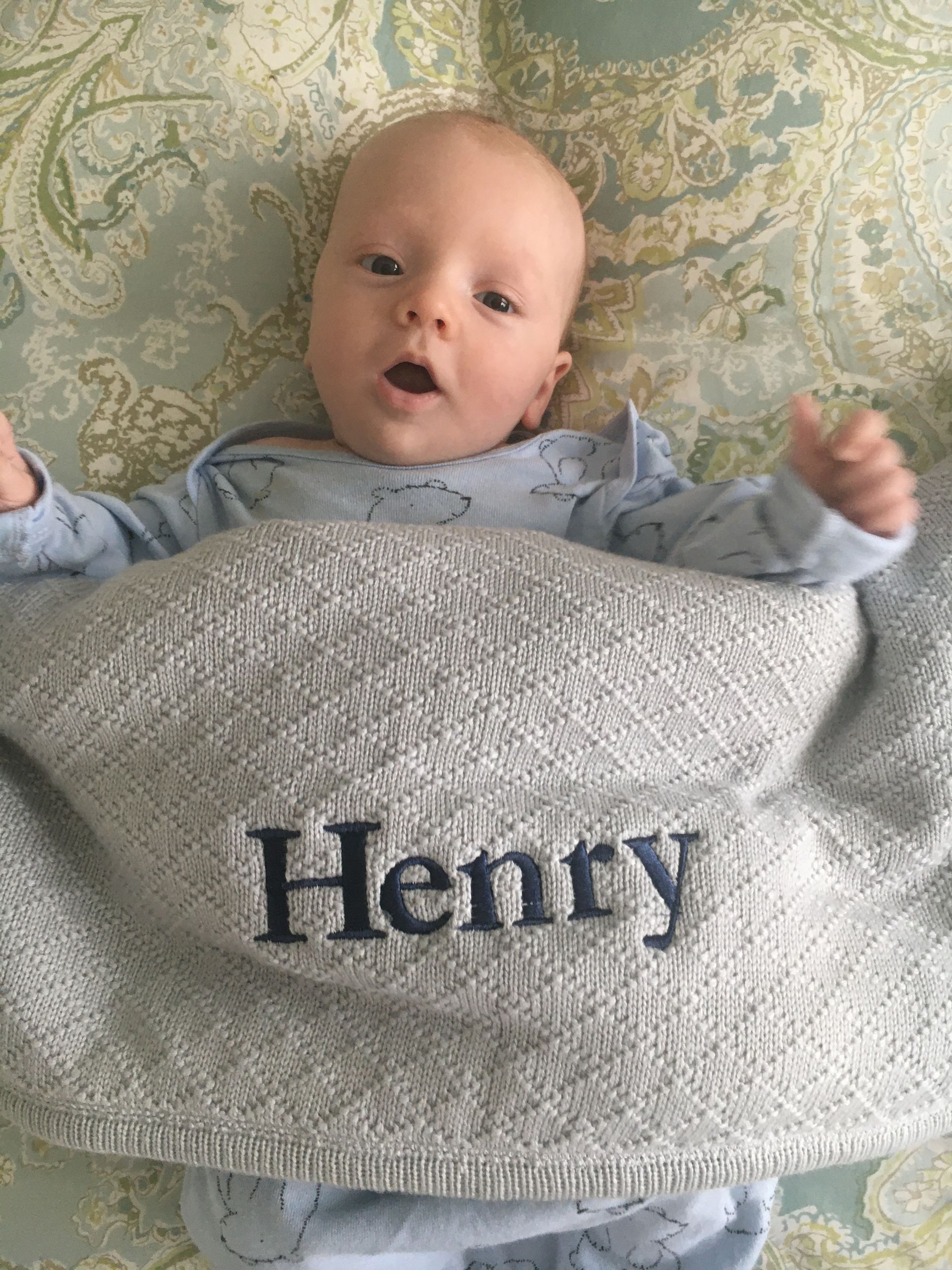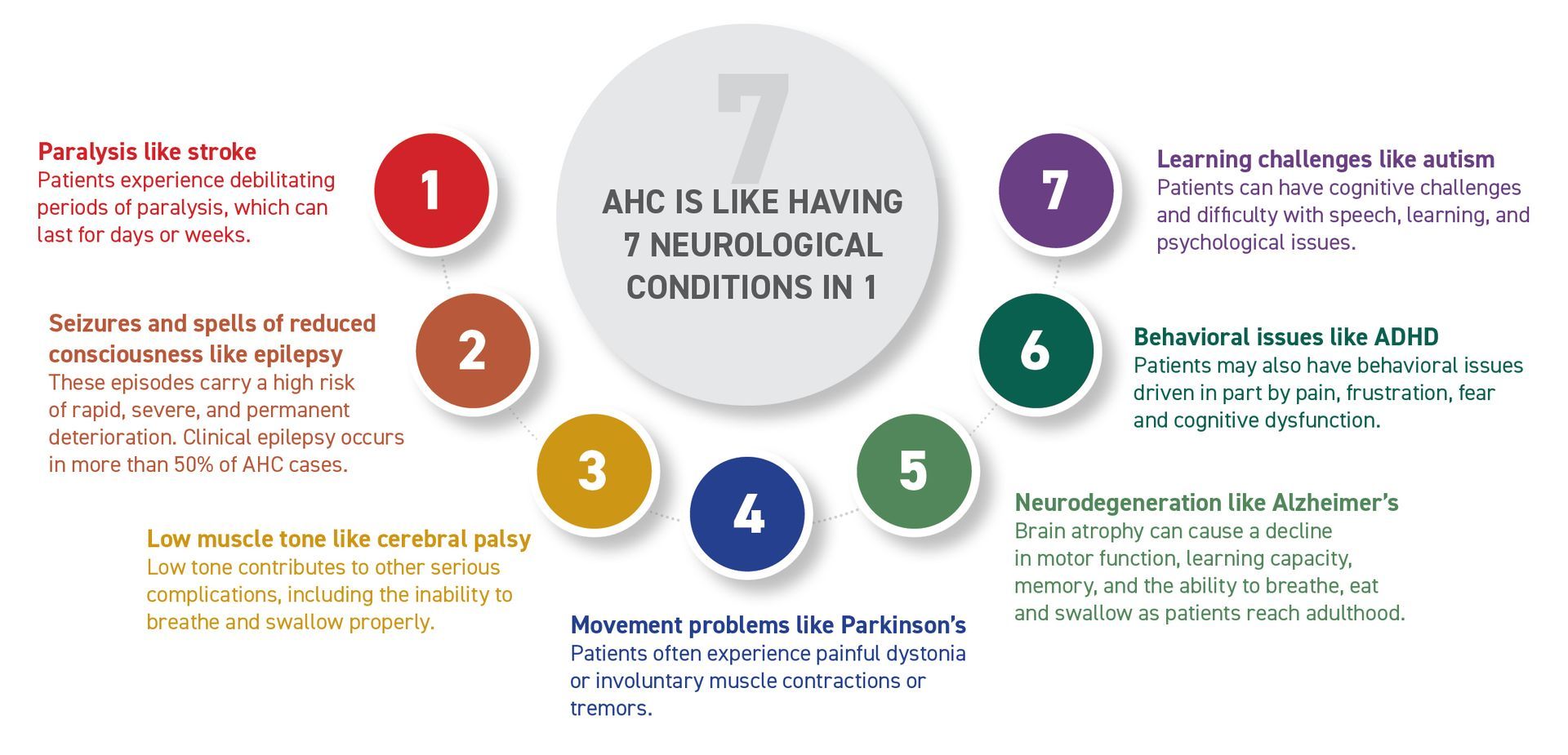About AHC
Alternating Hemiplegia of Childhood or AHC is a one in a million, rare, severe, genetic neurological condition caused by an ion imbalance in the brain.
AHC is most frequently caused by a mutation in the ATP1A3 gene which codes for a protein responsible for maintaining the critical electrochemical gradient in neurons in the brain known as the “sodium potassium pump.” There are only 1,000 diagnosed cases in the world.
Despite its name, AHC does not only occur in childhood and is instead a disease that patients battle throughout their lives and is associated with devastating outcomes like death, brain atrophy, and sudden and permanent degeneration.



